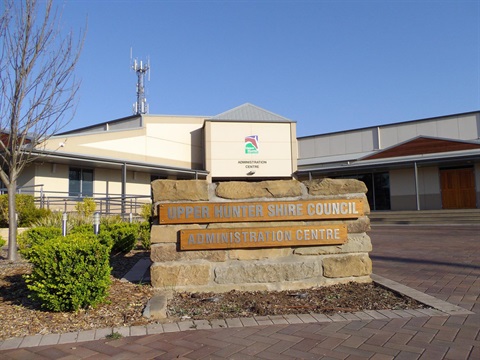Boil Water Alert - Aberdeen, Scone & Murrurundi

Boil Water Alert – Aberdeen, Scone & Murrurundi (Including Murrurundi Pipeline)
Updated: 12:20pm, 5 June 2025 - No new updates
Upper Hunter Shire Council has issued a Boil Water Alert for residents in Aberdeen, Scone and Murrurundi due to elevated turbidity levels in the water supply from Glenbawn Dam.
When Does the Alert Apply?
Scone and Aberdeen: Tap water is safe to drink until 8pm on Monday, 2 June 2025.
Murrurundi: Tap water is safe to drink until 8am on Wednesday, 4 June 2025.
After these times, water must be boiled before use.
What You Need To Do:
From the times noted above, water used for the following purposes must be boiled and then cooled:
• Drinking
• Preparing food, including washing fruit and vegetables
• Making ice
• Brushing teeth
• Preparing baby formula
Kettles with automatic shut-off switches can be used. Store cooled, boiled water in clean, lidded containers and refrigerate where possible.
Everyone, particularly people caring for young children, should be careful to avoid scalding when heating and then cooling the water.
Tap water is safe for bathing. There is a potential risk if water is swallowed during washing and bathing. Parents and carers could consider a sponge bath for children as an alternative.
Why This Alert Is in Place:
The recent heavy rain in the Glenbawn Dam catchment has caused problems with effective water treatment, meaning that drinking water is not safe.
Recent heavy rainfall in the Glenbawn Dam catchment has led to high turbidity in the water supply. On Saturday, turbidity exceeded 6 NTU, prompting a temporary halt to pumping. However, with Scone’s reservoir at 40%, pumping will recommence at 8pm 2 June 2025.
Although the water in the distribution system currently measures around 1.8 NTU, the source water remains too turbid to meet drinking water standards under current treatment capacity.
This alert is a preventative safety measure based on NSW Health advice.
The NSW Health website also includes special considerations for:
Schools and childcare centres
https://www.health.nsw.gov.au/environment/water/Pages/schools.aspx
Commercial establishments serving food or drinks:
https://www.health.nsw.gov.au/environment/water/Pages/foodfacts.aspx
Using water header tanks:
https://www.health.nsw.gov.au/environment/water/Pages/watertanks.aspx
Swimming pools and spas:
https://www.health.nsw.gov.au/environment/water/Pages/pools.aspx
What is an NTU?
Water turbidity is measured in Nephelometric Turbidity Units (NTU). Turbidity refers to how cloudy or murky the water appears due to tiny suspended particles like silt, clay, organic matter and microorganisms. These particles scatter light – and the more scattering that occurs, the higher the NTU reading.
What Council Is Doing:
• Testing alternative water sources, including low-level Glenbawn draws and the Aberdeen river intake
• Conducting multiple daily water quality tests
• Working closely with NSW Health to monitor the situation and determine when the alert can be lifted
• Providing ongoing updates via this website, Facebook and radio
How Long Will This Last?
This alert remains in place until further notice. Council will notify the community once NSW Health confirms the water is safe to drink without boiling.
Thank you for your understanding and cooperation.